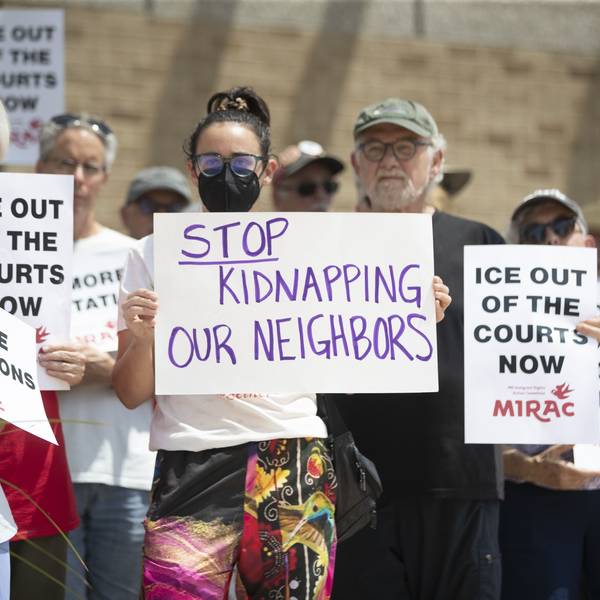he Supreme Court appears poised to hand Donald Trump another victory in his war on immigrants.
Last year, in Trump v. Hawaii, the court upheld the President's Muslim travel ban as a proper exercise of executive branch authority. This year's battle, in Department of Commerce v. New York, concerns the hotly contested issue of whether a citizenship question can be included in the 2020 Census. Judging from Tuesday's oral argument in the case, the court will divide once again on ideological lines, resulting in a 5-4 opinion in the administration's favor.
No matter how the court rules, its decision will affect every American. The Census is used to set the number of votes each state is accorded in the Electoral College and the number of seats in the House of Representatives.
No matter how the court rules, its decision will affect every American.
In addition, Census results are used to determine how some $880 billion per year in federal funds are distributed throughout the country for schools, road, and transportation construction, and to fund safety-net programs including Medicaid and Head Start.
The administration's probable victory in the Census question case, based on the comments made by Justices, is seen by many as a threat to the political power wielded by blue states like California and New York that have large immigrant populations.
The Census must be taken every ten years pursuant the Constitution's "enumeration clause" (Article I, SS 2, cl. 3). Section 2 of the Fourteenth Amendment, ratified in 1868, supplements the enumeration clause, requiring that House members be apportioned according to the "whole number" of persons in each state, not just citizens.
The federal government included citizenship questions in every Census conducted from 1820 to 1950, with the exception of 1840. In 1960, however, the Census Bureau, which became part of the Commerce Department in 1913, decided to remove the question from the basic short-form each American household is required to complete.
Bureau researchers concluded that citizenship inquiries depress the nationwide headcount for noncitizens and Hispanics, who are less likely to fill out Census forms containing such questions, out of fear their responses could be used against them or family members.
Starting in 1970 and continuing to 2000, citizenship questions were included in a longer Census form that was sent out to one in six households. But that practice was halted for the same reasons. Since 2005, the Census Bureau has collected citizenship information in the American Community Survey, which is distributed annually to 3.5 million households (approximately two percent of households nationally). The Bureau also acquires citizenship numbers from information gathered by other federal agencies, such as the Social Security Administration.
There are thus good reasons for the Census Bureau not to ask a citizenship question on the short form, and other sources of data are used by the government to gauge the total number of citizens.
Shortly after his confirmation as Commerce Secretary, Wilbur Ross directed the Bureau to reinstate the citizenship question in the Census short form. Appearing before the House Ways and Means Committee in March 2018, Ross testified that he acted at the request of the Department of Justice, which, he said under oath, wanted more precise citizenship data to better enforce the Voting Rights Act.
Ross' directive was challenged in three federal lawsuits brought in New York, California, and Maryland. In each case, federal district court judges struck down the citizenship question, finding, in the words of Judge Jesse Furman, who sits in Manhattan, that Ross' congressional testimony about the citizenship question was "pretextual."
Emails uncovered as a result of lawsuits revealed that the idea for reinstating the citizenship question came out of discussions between Ross, Steve Bannon, and former Kansas Secretary of State Kris Kobach.
Emails uncovered as a result of these three lawsuits showed that the idea for reinstating the citizenship question came not from the Department of Justice, but as a result of discussions between Ross, former White House chief strategist Steve Bannon, and former Kansas Secretary of State Kris Kobach, both of whom have long histories as proponents of anti-immigrant policies. As head of Trump's since-abandoned Presidential Commission on Election Integrity, Kobach propagated the myth that millions of undocumented aliens had voted in 2016. The Department of Justice subsequently endorsed the citizenship question--at Ross' request, not the other way around.
The Supreme Court decided to hear the New York case in February, and set it on an expedited track for a hearing and decision. A decision is expected by the end of June.
Keep reading...Show less




